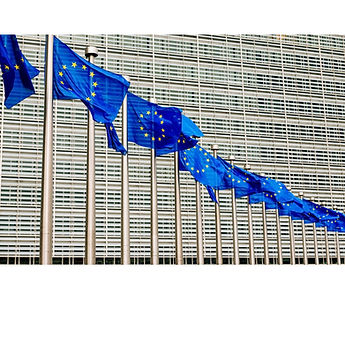
European Projects
EFIC, together with its Cluster of Clusters members, monitors and participates in relevant opportunities in EU funding programmes, such as Social Dialogue, Erasmus+, Horizon, Interreg, and many others.
Funded Projects
R-evolve (2024-2028)

The R-evolve project - Roll out Systemic Change to evolve the Furniture Industry towards CE through the Implementation of innovative Circular Business Models, Material & Design Strategies, and the Digital Product Passport supports the European furniture industry's transition to circularity by developing and testing Product-System Innovations, including CE-oriented business models, circular design strategies, and Digital Product Passports (DPP). In collaboration with industry stakeholders, the project pilots these solutions, assesses their sustainability impact, and provides training materials to help 50 companies adopt circular practices. R-evolve also fosters knowledge exchange through a Community of Practice, advancing sustainability across the sector.
FURN 5.0 (2024-2026)
The FURN5.0 project - Industry guidelines and tools with a worker-centred approach for the EU furniture sector digitalisation aims at helping furniture companies transition to Industry 5.0 by offering practical tools, including an online survey, self-assessment tool, and guidelines to integrate Industry 5.0 practices. It also identifies key skills for managers and employees and provides recommendations to support adoption across the sector.

CirCLER (2024-2027)

The CirCLER project - Circular Economy Transition Manager: guiding companies of the furniture value chain to deploy their transition strategy for a more circular economy, is co-funded by the European Commission under the Erasmus+ programme and will last 3 years.
The primary objective of the CirCLER project is to define the professional figure of the Circular Economy Transition Manager for the wood and furniture industry and the necessary training, i.e. the set of skills expected by companies for this emerging role. The project also aims to facilitate and guide the furniture industry's transition towards a circular and sustainable economic paradigm. In accordance with the European Commission's priorities, the ecological transition must increasingly involve companies and workers in the sector.
FLIER (2023-2025)
The purpose of the FLIER project - The Future of Furniture: Circular Furniture Designers for a sustainable industry is to properly train Sustainable Furniture Designers for making sustainable furniture the norm in the EU market or in other words, getting the professionals of the furniture industry in charge of product design & development to know and understand in advance the legal requirements and challenges of the abundant environmental legislation under development, as well as the voluntary instruments and methodologies available in relation to furniture sustainability.

Furn-CIRCLE (2023-2025)
.png)
The FurnCIRCLE project - Circular Economy Guidelines and Tools for Application in the EU Furniture Sector will contribute to promote, strengthen, develop social dialogue at regional, national and EU level within the furniture sector, as it will provide key up-to-date information, tools and recommendations for social partners to address the debate and challenges of the furniture industry circular and climate-neutral transition, including the analysis of implications and changes for employment and work and the new skills needs for workers that this transition will entail.
Sawyer (2019-2021)
The SAWYER project - holistic approach for the identification of Skills and sAfety needs towards a groWing sustainability & circularitY of furniturE sector studied the main legislative and voluntary instruments that can facilitate the transition of European furniture companies to a more circular economy, and it analysed how they are expected to affect and transform the European furniture sector in 2030, including the possible appearance of new business models. The project also studied how this transition can affect the existing jobs and their tasks, workers’ health and safety risks and their new training needs.

Digit-FUR (2017-2019)

The DIGIT-FUR project - Impacts of the digital transformation in the wood furniture industry studied and forecast the potential impact of digitisation in the EU furniture industry by 2025 and in particular, how this transformation will affect current wood furniture value chain and processes in the industries – e.g. purchasing, design, manufacturing, marketing, sales and logistics – and their associated jobs in terms of changes in occupations, health and safety at work and new skills needs.

